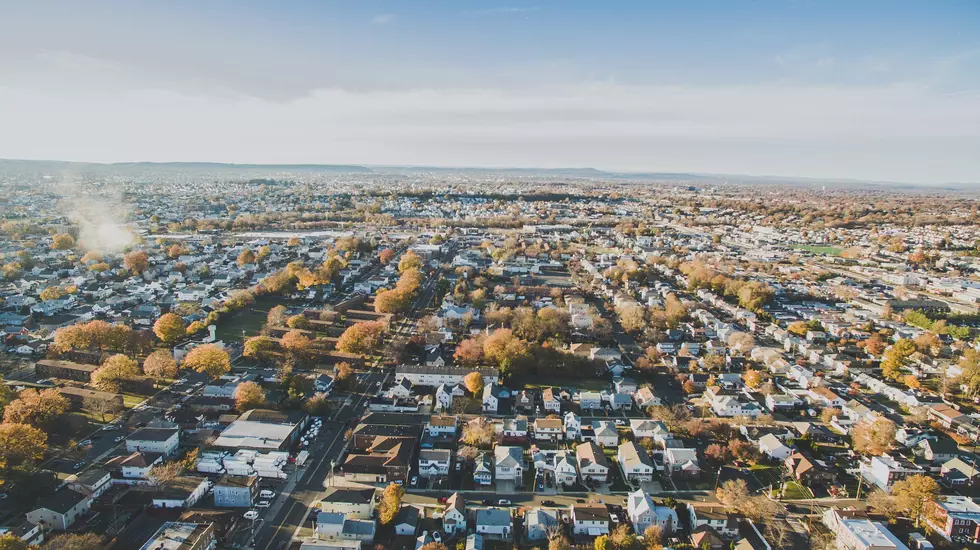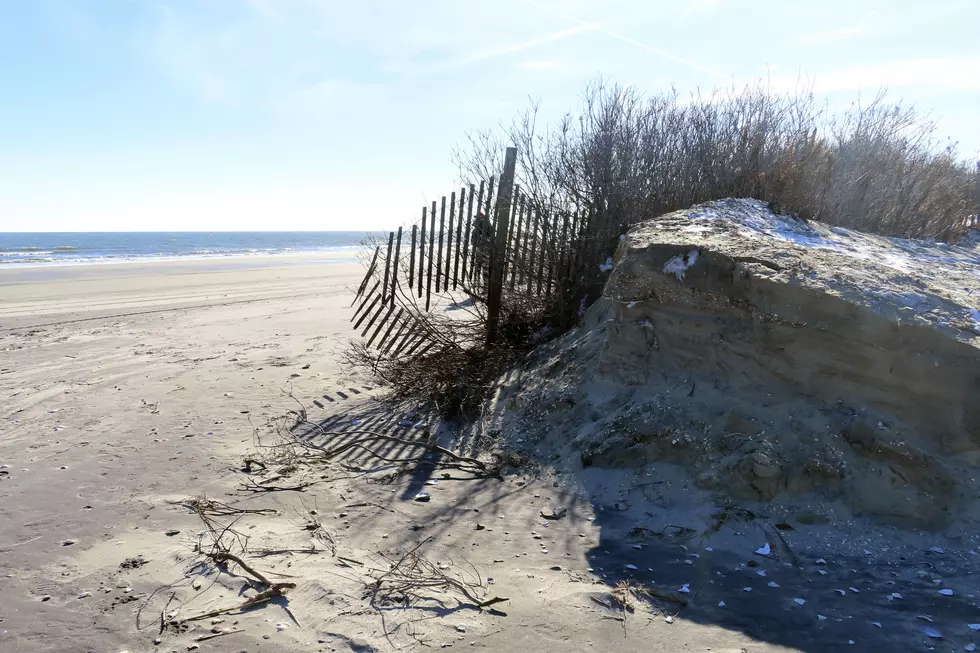
NJ freezes some property tax bills: Top 10 towns gaining (or melting) the most
TRENTON – Less than three weeks remain for New Jersey senior citizens and disabled people living in homes they own to essentially freeze their property taxes by signing up for a state tax-relief program.
The Senior Freeze application deadline for 2021 taxes is Oct. 31. There is a list of eligibility requirements, including living in New Jersey since the end of 2010 and owning your current home since the end of 2017, as well as an income of $94,178 or less in 2021.
“The Senior Freeze is essential property tax relief for New Jersey’s older residents, supporting their desire and ability to stay in their homes and their communities where they have built their lives,” said Evelyn Liebman, director of advocacy for AARP New Jersey.
Senior Freeze doesn't really freeze your taxes
The program reimburses its participants for increases in property taxes. Income eligibility thresholds were increased starting in 2018, enhanced by more than 30%, but that hasn’t reversed declining enrollment in the program.
“We encourage all eligible residents to take advantage of this important resource,” said state Treasurer Elizabeth Maher Muoio. “We also encourage everyone to check out the eligibility requirements, even those who did not qualify in the past, because the increased income limit has made many more people eligible in recent years.”
At the bottom of the post is an interactive graphic with data for every city and town in New Jersey. But here are a few highlights:
There were 429 towns with fewer Senior Freeze checks in 2020 than in 2015. The biggest losses:
Manchester Twp in Ocean County, down 1,622 to 2,135
Berkeley Twp in Ocean County, down 1,101 to 3,589
Hamilton Twp in Mercer County, down 504 to 2,145
Jersey City in Hudson County, down 440 to 750
Lakewood in Ocean County, down 422 to 829
Clifton in Passaic County, down 422 to 829
Pennsauken in Camden County, down 388 to 1,762
Bayonne in Hudson County, down 378 to 588
Newark in Essex County, down 364 to 909
Woodbridge Twp in Middlesex County, down 363 to 2,314
There were 122 towns with more Senior Freeze checks in 2020 than in 2015. The 10 biggest gains:
Waterford in Camden County, up 84 to 393
Millville in Cumberland County, up 83 to 732
Upper Township in Cape May County, up 82 to 321
Irvington in Essex County, up 81 to 254
Howell in Monmouth County, up 80 to 834
Little Egg Harbor in Ocean County, up 68 to 913
Hamilton Township in Atlantic County, up 65 to 496
Union Beach in Monmouth County, up 65 to 149
Evesham Twp in Burlington County, up 50 to 965
Wanaque in Passaic County, up 47 to 350
There are 12 towns where participation in Senior Freeze has gone down in each of the last five years:
Brigantine in Atlantic County
Fairview in Bergen County
Burlington City in Burlington County
Commercial Twp in Cumberland County
Kearny in Hudson County
North Bergen in Hudson County
West New York in Hudson County
Pequannock in Morris County
Manchester in Ocean County
Little Falls in Passaic County
Penns Grove in Salem County
Summit in Union County
There are no towns where participation has gone up each of the last five years – but two went up in four years and had no change in the fifth, so never backslid. Those were:
Pemberton Borough in Burlington County
Lawrence Twp in Cumberland County
How much is a Senior Freeze rebate?
The size of the rebate varies by the homeowner, as it depends on the year when a person becomes eligible and signs up and any subsequent property tax increases in their town.
Last year, when the 2020 reimbursements were paid, the average check received by the program’s 144,537 recipients was $1,237. But those averages were over $3,000 in Allenhurst, Millburn and Deal and less than $250 in Shrewsbury Township and Burlington County’s Washington Township – and for the one home in Walpack that signed up.
The 10 municipalities where the Senior Freeze checks are biggest:
Allenhurst in Monmouth County: $3,337
Millburn in Essex County: $3,220
Deal in Monmouth County: $3,063
Glen Ridge in Essex County: $2,888
South Orange in Essex County: $2,847
Oradell in Bergen County: $2,636
Hopewell Borough in Mercer County: $2,631
Princeton in Mercer County: $2,542
Rumson in Monmouth County: $2,537
Glen Rock in Bergen County: $2,519
The 10 towns that benefit the most from Senior Freeze, in terms of total money received:
Woodbridge Twp in Middlesex County: $3,991,905
Edison Twp in Middlesex County: $3,126,029
Toms River Twp in Ocean County: $2,784,581
Gloucester Twp in Camden County: $2,414,993
Brick Twp in Ocean County: $2,406,017
Clifton in Passaic County: $2,364,815
Hamilton Twp in Mercer County: $2,303,258
Berkeley Twp in Ocean County: $2,030,261
Union Twp in Union County: $1,834,863
Wayne Twp in Passaic County: $1,730,433
Changes on the way
This could be the last year that people must file a paper application for the program.
It could also be the last year that the Senior Freeze program, known officially as the Homestead Property Tax Reimbursement Program, operates the way it does now – as a rebate check paid the year after the application is filed. A bill advancing through the Senate converts it into a credit subtracted from tax bills.
“The intention of the Senior Freeze is to provide assistance with New Jersey’s sky-high property taxes to vulnerable seniors who deserve a break,” said Sen. Jean Stanfield, R-Burlington. “This small but impactful modification to the program will dramatically simplify the entire reimbursement process so that seniors can receive their credit more efficiently.”
The bill (S259/1501) was endorsed by one committee two weeks ago and now awaits a hearing in the budget committee. That panel meets Thursday but doesn’t have the bill on its agenda.
Under the bill, the credit would be paid on a homeowner’s third-quarter and fourth-quarter tax bills – which Liebman said would be an improvement over the current refund checks that often arrive “many months later.”
“This bill would allow participants who are struggling to afford everything from groceries to gas, medicine these days, to have more resources and better financial security by eliminating that need to wait for that refund,” Liebman said.
“For many older New Jerseyans, having to pay that property tax bill upfront represents a real difficult burden,” she said.
Liebman said New Jersey is home to 1.6 million Social Security beneficiaries, providing an average income of a bit over $20,000 a year. She 26% of recipients rely on Social Security for 90% of their income, and 51% rely on it for 50% of their income.
Some homeowners would continue to receive rebate checks under the bill if they live in a unit in a cooperative, mutual housing corporation or continuing care retirement community and don’t pay taxes directly to their municipality. But the rebates would be paid in their tax year, not the following year.
Michael Symons is the Statehouse bureau chief for New Jersey 101.5. You can reach him at michael.symons@townsquaremedia.com
Click here to contact an editor about feedback or a correction for this story.
2021 NJ property taxes: See how your town compares
COMPARE: Highest 2020 property taxes in each county
More From New Jersey 101.5 FM









